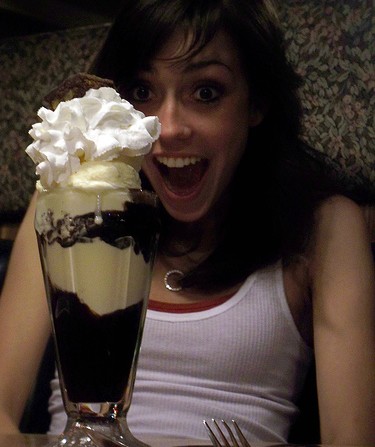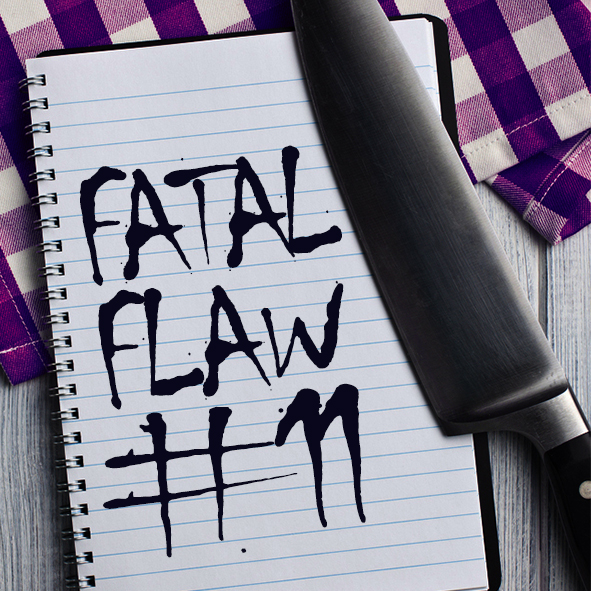Oh, Those Lovely Adverbs
Since we’re examining pesky adverbs and weasel words this month on Wednesdays, I couldn’t resist sharing this entry that I wrote for our compilation book: 5 Editors Tackle the 12 Fatal Flaws of Fiction Writing (which you can buy online here). Debate rages over whether adverbs are bad for your writing (like too much sugar in your diet?). See what some writers, famous and otherwise, have to say about these “pesky” critters and share your thoughts in the comments.
One of my editing clients just this week wrote and asked me, “What’s the problem with adverbs? Are they really bad to use? Why does everyone say I should take them out of my book?”
Adverbs do have a bad rep. Stephen King was quoted (and endlessly re-quoted) for saying that fantasy author J. K. Rowling “never met an adverb she didn’t like” (and that wasn’t a compliment). Out of curiosity, I read some comments on one of the Harry Potter forums (www.Potterforums.com) to see if “normal” readers are bothered by them as well—or if it’s just us authors that have a bug up our broomstick. Here’s one comment:
Does anyone else get sick of reading calmly, serenely, cheerfully, smilingly after everything Dumbledore says? By the sixth book I keep thinking, “Alright! I get it! . . . I don’t need to be reminded with calmly stamped after every sentence. J. K. Rowling’s adverb affair is the only thing I find tedious when reading the HP books. Gems like unconcernedly, disconcertedly, disconcertingly, reprovingly. AGH! But the Dumbledore adverbs by far outstrip the rest when it comes to pointless repetition.
That nerd rant aside, I understand the books are for a wide audience that includes children, and those kinds of dialogue tack-ons are there to reduce the chance of the reader misunderstanding what the author intends in the character’s dialogue. But still.
“What are those things?” Harry asked, terrifiedly-ly.
“They are adverbs, Harry,” Dumbledore replied serenely, “There is nothing to be feared from an adverb, Harry. It is only fear of not being understood that we see when we find an adverb,” he added calmly.
“But still,” said Harry unargumentatively but still worryingly. “They’re pretty annoying after the 500th reading,” he added, trying to sound as calmly and serenely and cheerfully and smilingly as Dumbledore.
“Yes, I think that once we try to use them after every sentence, we will find them less useful. We shall then call to our aid long sentences that basically denote the same thing,” he said as if they weren’t floating through a sea of obnoxious adverbs but discussing the matter over drinks.
I just had to share that.
However, Zevi makes another good point, noting that in lieu of an abundance of adverbs, Rowling will often use a long sentence to achieve a similar effect.
Try this:
Jane ate her food slurpily and happily as she kicked her feet swingingly and smiled hugely at her friends.
Now this:
Jane ate her food with a slurping delight and with great happiness as she kicked her feet back and forth in a swinging motion and gave her friends a big wide smile.
I’ve dispensed with all those adverbs, but ended up with just as awful a sentence. Do I really need all those descriptive details? I think not.
Jane slurped her drink, kicking her legs as she sat on the swing. She grinned, glad the school year was finally over.
Here’s what “rinnyface” says in answer to “Zevi”:
Why [does Rowling use so many adverbs]? I think when someone is trying to get a scene down, they want to articulate how each character is feeling/being characterized without stopping and going into an in-depth tangent. At the same time, you can argue that she could totally just have cut a lot of it out. Then it’s just, “Harry said.” “Ginny replied.”
I guess she doesn’t cut back on her adverbs simply because it shows the reader how her characters are affected without having to molest the reader with description. Who knows!
Some other great comments about adverbs. Kevin Spacey’s character in the movie Outbreak: “It’s a lazy tool of a weak mind.”
Getting back to Stephen King though, here’s a short bit from The Stand:
“Huh!” Harold said, squeaked actually.
“Go away!” he yelled tearfully.
He looked up at her finally, his face tear streaked and still wanting to blubber. “I want my mother,” he said simply.
“You’re already getting one,” she added critically, looking at his shoulders.
Notice any adverbs? Granted, The Stand was written in 1978, possibly “pre-adverb-bashing.” Extra Brownie points go to authors who learn and grow and improve in their writing, right?
Here’s something a poster said on another forum:
I don’t mind [adverbs] after dialogue if they make sense and it would weigh down a story to try and show it another way.
“That’s lovely,” Bob said dryly.
As opposed to “That’s lovely,” Bob said with a hint of sarcasm that wasn’t really sarcasm, but more that special tone he used when he was trying to sound sarcastic, but not really.
Sometimes, you can be more efficient with an adverb.
Maybe that’s a bad example above, but I think they’re okay here and there. I do watch them myself and try to find other ways to get the moment/emotion across. But, it doesn’t always work out.
Sharon Sheehe Stark uses adverbs spectacularly. “The jeep lurched stupidly.” I’ll never forget that one.
I agree with “CrastersBabies” above. There is a time and place for an occasional adverb. Maybe think of it like this. You get ten “adverb” chips per novel (similar to what Elmore Leonard said about using exclamation points: no more than two or three per 100,000 words of prose). So if you have limited use of an adverb, make it a good one, and in just the right place.
Leonard also said this about description and the use of adverbs:
In Ernest Hemingway’s ”Hills Like White Elephants,” what do the ”American and the girl with him” look like? ”She had taken off her hat and put it on the table.” That’s the only reference to a physical description in the story, and yet we see the couple and know them by their tones of voice, with not one adverb in sight.
He also said using an adverb to modify the word said is “a mortal sin.“ It’s pretty evident that Leonard sides with King on the adverb issue.
So I hope this look at “pesky” adverbs has been insightful and fun (she said happily).
Your opinion of adverbs?










Well just about to get back to work, read this piece and taken it on board. Don’t think I use adverbs generally, like to cut to this chase when I’m writing. My worse crime is syntax, I think differently from most and this comes across in my writing. Two or three Editors have whinged about my syntax! Quite prepared for criticism on my comment!
A terrific post! It’s very easy to fall into the adverb trap and I must have done it a million times in my own work.
As a pro editor, I have never understood this current anti-adverb movement. In my view, it’s ignorant and misguided. The problem is not with using adverbs – and I believe every writer should know how to use them well – but that some amateur writers overuse the “ly” form. As an editor, I work with clients by reading their work out loud to them, and this way we catch overuse of “ly” words. But that doesn’t mean I would ever suggest in this universe that using adverbs is inherently bad! That would be just silly.
I love adverbs but I have learned to go back and cut many of them. However, I remember having to read A Farewell To Arms by Hemingway while in high school, and absolutely hating it. Many years later I realized it was because there was no description of people and places. The prose was as spare as could be.
I agree. That’s like saying broccoli is bad. Too much of it may be, but it has its usefulness.
Very helpful and timely. Just removed over two hundred unnecessary adverbs from my novel but left the ones that worked.
Thanks muchly
Terrific!
I honestly did not notice the adverbs while reading the HP series. Only after I read Stephen King’s book and his quote did I actually pick up on them. I am not entirely anti-adverb either, considering that many humor writers like PG Wodehouse used them too, to great effect. But I agree that it must have a place – it cannot be the lazy option, and adverbs have to be weeded out in subsequent drafts.